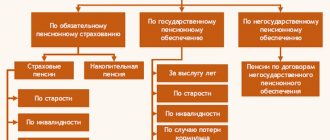Who is a foreign investor
We have different mentalities. It’s normal for us to share a piece of bread with our neighbors and help someone in need. Westerners are brought up differently: they often perceive investing in another country as a business (exchanging glass beads for gold). An example of this is the attitude of the United States towards the countries of the Middle East, China or England towards colonial India.
A foreign investor is an entity that makes all types of investments (financial, innovation, know-how, etc.) in various objects with the aim of generating income (all types of values and political influence).
I often say: if you don't want to end up on a reservation, consider the humble American pastor as an investor. Russia is a rich country: those who want to chop off a piece are legion.
Who can be an investor
In relation to Russia, foreign investors are considered foreign:
- countries (the order is determined by Federal legislation);
- organizations with international status (act on the basis of international treaties);
- legal entities;
- organizations whose legal status is not a legal entity, but the laws of the registrar country allow for foreign investment activities;
- citizens (if their legislation allows them to engage in this activity);
- stateless persons living outside the Russian Federation (are governed by the laws of the country of residence).
Main investment objects
The main objects of interest to investors:
- oil and gas production and processing;
- agro-industrial complex;
- mining plants;
- steel production.
In short, industries that are still popular.
Smaller investors are looking at breweries, hotels, dry cleaners, and fast food chains.
Legal status of a foreign investor in the Russian Federation
Federal Law “On Foreign Investments in the Russian Federation” is the main law regulating the work of foreign investors. From the moment investments are made, they are subject to legal protection, benefits and guarantees.
When an enterprise loses the status of such a subject, at the same moment all preferences are canceled.
Restrictions for foreign investors
Foreign investors are provided with preferential working conditions. Therefore, enterprises with foreign capital are often in better conditions relative to domestic producers.
However, if the enterprise belongs to the group of objects that ensure the defense capability and security of the country, the purchase of more than 50% of the authorized capital is approved by the Government Commission (Federal Law “On the procedure for making foreign investments in economic entities of strategic importance...”).
Transactions ranging from 25% to 50% are also subject to approval.
Benefits for depositors
In order to attract foreign investors, the state provides certain benefits for them.
- Provided that at least 10% of the authorized capital is foreign investment, customs benefits are provided. Equipment, components, spare parts (when they are part of the authorized capital) are exempt from taxes (Article 150 of the Tax Code, Federal Law “On the Customs Tariff”).
- When the share of foreign investment is more than 30% in the authorized capital, it is allowed to export manufactured products without a license (however, in special cases there are restrictions on the scope of activity).
- Support, additional benefits and guarantees are provided to foreign investors at the regional level at the expense of local budgets and regional funds.
Tax principles
If the investor is assigned a share of ownership of 25% of the authorized capital or more (or the project is a priority), then the change in the tax rate remains at the time of registration of the enterprise with foreign investment. This does not apply to VAT, excise taxes and contributions to the Pension Fund.
The stability of payments is guaranteed by law for the payback period of the project (but not more than 7 years). For priority foreign investments with a total volume of at least 1 billion rubles. (or in currency equivalent at the Central Bank exchange rate) the period of validity of preferential tax conditions may be extended.
Rights of foreign investors
International treaties on foreign investment, which Russia adheres to, declare the creation of a national regime.
According to Art. 3 laws, a foreign investor has the right:
- be an equity investor when creating joint ventures;
- be the organizer and owner of enterprises and branches;
- buy and sell (partially, completely) property complexes, enterprises, completed and unfinished construction projects, securities, shares, and other property;
- acquire rights to use land and other natural resources;
- acquire other property rights;
- engage in investment activities permitted by the laws of the Russian Federation.
How to plan new foreign investments
For investors looking to start new operations in China, the impact of the new FIL is limited.
First, and most importantly, investors planning to enter the Chinese market should learn more about the investment structures available. As mentioned, some of the existing forms of investment, such as CJV, no longer exist since the FIL came into force.
Foreign investors will be required to establish their enterprises in accordance with the provisions of the laws: O and other applicable legislation similar to local investors.
On the one hand, a unified approach to foreign domestic investment will make the investment path less difficult in the long term. However, on the other hand, this also means that everything that foreign investors previously learned about investment structures in China is partially outdated.
Read more CHINA NEWS Corporate China embraces electric vehicle boom
Investors should pay close attention to relevant legislative updates and seek professional advice before making investments following the implementation of FIL.
Investors should note that Article 18 of the FIL states that local governments (at the county level or above) may formulate policies to encourage and facilitate foreign investment only within the scope of their statutory powers and in accordance with laws, administrative and local regulations.
Facilitation of foreign investment transactions
In other words, any unjustified incentives promised beyond the powers of local governments or contrary to the law can be revoked by the national government.
Investors should endeavor to check whether incentives offered locally are compliant with Chinese law and consult with professional advisors who can help identify incentive schemes offered by local governments that may not appear to be appropriate for you.
How to change existing investments to make them compatible with the new norms.
Methods for resolving disputes in Russia
All disputes regarding foreign investments (including compensation issues) are resolved by:
- Supreme Court of the Russian Federation;
- Supreme Arbitration Court of the Russian Federation;
Or in accordance with an international treaty in force on the territory of the Russian Federation.
If one of the parties to the dispute is a government agency, enterprise or organization, and the issues are directly related to economic activity, you need to contact the court, the Court of Arbitration or the International Center for the Settlement of International Disputes.
Antimonopoly legislation and foreign investors
The state made sure that a foreign investor could not significantly influence the deterioration of the economic situation (for example, buy up competitive enterprises in the industry and force them into bankruptcy).
Preliminary approval of transactions with the Federal Antimonopoly Service of the Russian Federation is required if the following is purchased:
- at least 25% of the voting shares of the joint-stock company;
- at least 1/3 share in the LLC;
- property worth more than 25% of assets;
- more than 50% of the voting shares of a foreign legal entity.
Before purchasing a share, you will have to contact the Federal Antimonopoly Service of the Russian Federation when:
- the total value of the assets of the buyer and seller is more than 7 billion rubles;
- total revenue for the year exceeded 10 billion rubles, and the total value of assets exceeded 400 million rubles.
The Federal Antimonopoly Service of the Russian Federation controls import supplies of organizations with a total annual amount of more than 1 billion rubles.
Impact of the new FIL on CJVs and EJVs
For existing FIEs in the form of a CJV or EJV, they need to change their governance structure during the five-year transition period to a three-tier structure (board of shareholders, board of directors and manager) in accordance with the Companies Law.
Read more CHINA NEWS Shanghai to attract more investment to Hongqiao International Center
This change will make the company's governance structure clearer, avoiding situations where the board of directors makes decisions with absolute power in CJVs and EJVs.
use of foreign currency
In accordance with the Law on Joint Stock Companies, decisions of the board of directors on material issues must be considered and approved by shareholders holding two-thirds or more of the voting rights at a meeting of shareholders, and not made unanimously by the directors present at the meeting of the board of directors in accordance with the CJV and EJV.
This will prevent the company from ending up in a dead end.
For existing CJVs, the impact of the new FIL depends on whether they have legal personality. If they are currently a CJV with legal personality, during a five-year transition period they will need to reorganize into a limited liability company or joint stock company in accordance with the Companies Law.
If they are a CJV without legal personality, they can, during a five-year transition period, become a partnership, in accordance with the Partnership Law, or a limited liability company or joint stock company, in accordance with the relevant law.
Once FIL is fully implemented, there are no more FIEs in CJV form. Existing EJVs will be required to amend their association articles and change their governance structure and operating rules during a five-year transition period in accordance with the Companies Law.
Types and forms of foreign investment
Types of investments:
| Direct (full or partial ownership, at least 10% of the authorized capital) | Capital investments, fixed capital:
|
| Indirect: | |
| Portfolio (the requirement to own more than 10% remains) | Purchase of a portfolio of securities |
| Commodity and financial credit | Deferred payment for import-export for a period of 6 months, international deposits and loans |
From an economic point of view, 2 forms are most widespread:
- direct (when the investor receives the right to manage the object);
- portfolio (without the ability to influence decision making).
Regulated foreign relations and basic concepts
The Federal Law “On Foreign Investments in the Russian Federation” guarantees the rights for foreign investors to invest in the Russian Federation and their working conditions. The act notes that it is aimed not only at attracting, but also at high-quality use of resources of the domestic economy. Namely: money, technology, innovative experience.
The first two articles of the document are devoted to the relations regulating the Federal Law act and its concepts:
- The Federal Law for foreign capital is not valid for investments in the banking and insurance sector, the procedure for registration, operation and liquidation of companies in the corresponding field, excluding strictly specified situations.
- Investments of non-profit structures are not subject to the Federal Law if their work is useful for society. For example, scientific, educational, religious or charitable activities.
- Also, the document does not apply to residents of territories that have the status of special economic zones and conduct tourism, production, and promotional work.
- The owner of investments in the Federal Law is understood to be a foreign legal entity. Its legal capacity must be confirmed by the jurisdiction where the company is established. This also applies to organizations without legal entity status and citizens. The exceptions are foreign companies controlled by Russians. The state can also make investments.
- Investment is capital independently invested by a subject into an object under the jurisdiction of the Russian Federation. This could be the Central Bank, property rights, intellectual property.
- The investment is usually direct. It should consist of acquiring a share in the company, financial flows into fixed assets, and participation in leasing contracts.
- Project - implies a feasibility study of the feasibility of the declared activity, confirmed by estimate documents. It specifies the time period of the investment.
- The priority project involves an investment in rubles of at least 1 billion or a contribution to the management company of at least 0.1 billion.
- The payback period according to the Federal Law is defined as the time from the first day of real financing until the receipt of net profit (taking into account all mandatory deductions).
Here the concept of a controlled person is introduced. This is an organization owned by a citizen of the Russian Federation. Or a citizen has the right to make governing verdicts in it. This subject becomes the controlling person.
The role of foreign investment in the Russian economy
Despite the sanctions, foreign investment continues to flow into the country. At the same time, a significant part is our money taken abroad during the privatization debauchery. By registering a company offshore or in Europe and the USA, and then returning the funds, the owner launders money, having tax benefits.
From the positive. Additional cash injections stimulate the development of certain sectors of the economy and regions. This will help stop the flow of Russians flocking to Moscow to work.
Forms of asset injection
There are two ways to invest in the country's economy. The first of them is direct, the second is portfolio investments.
In the first case, funds are invested in a specific project or company. They are carried out in several ways:
- acquisition by a foreign investor of at least 10% of the share of the authorized capital;
- contribution to fixed assets when creating a branch of a foreign legal entity. persons in Russia;
- leasing certain equipment with a customs value of at least 1 million rubles.
It is this way of stimulating business that gives the most significant dividends in the relatively short term.
The Central Bank informs: in the non-banking sector, foreign direct investment in the first quarter of 2021 amounted to $0.2 billion. The same period last year gave figures of $10.3 billion.
Portfolio investments are carried out simultaneously along several vectors that form a common package. Most often, this looks like the acquisition of shares in a brand that develops various business areas.
What are the obstacles to foreign investment in Russia?
These are not even sanctions. The Western world has lost in enmity with Russia. It is very difficult to regain a huge market by turning the entire population against you. Personally, I don’t drink Georgian wines, I’ve been choosing domestic milk for a long time, and I buy suits in a store at a factory that sends products to France.
Called as obstacles:
- incomplete development (especially in the area of benefits), inconsistency of laws;
- protection at the legislative level of a lobbying group, and not all investors;
- corruption and crime (bye, you haven’t been to Ukraine yet);
- non-compliance with international treaties;
- difficulties with foreign exchange transactions;
- the impossibility of buying up land along with its subsoil (yeah, right now).
In general, like honey, like a spoon. I completely and completely approve of the meticulousness of customs and the tax authorities’ nagging, if this prevents the country’s wealth from being exported abroad.
Some guarantees of the rights of foreign investors in the Russian Federation
Key words: foreign investor, guarantees of rights, investments.
Foreign investments occupy a huge place in the economic realities of any country, including the Russian Federation. Foreign capital is attracted to the domestic economy with the aim of effectively using foreign material and financial resources, the latest technologies, and management experience for the development, improvement and modernization of the economic component of our country.
The economic development of any state is ensured by the level of development of legislation that regulates investment activities. In order to attract the necessary foreign investment and foreign investors into the country's economy, it is necessary to create special conditions, regime and protection for foreign investment at the legislative level. Foreign investors must clearly understand the focus of national law to protect their interests in the host state.
In addition to national law, foreign investors also rely on international legal sources for investment activities. Thus, the Seoul Convention “On the Establishment of a Multilateral Investment Guarantee Agency” [1], adopted in 1985 and ratified by Russia in 1992, has become widespread. In addition to this convention, guarantees are provided to investors through bilateral agreements between states on the promotion and mutual protection of investments and investments. It should be noted that such agreements should be given special attention, since they contain rules of law regarding the resolution of disputes of such categories as disputes between the investor and the host state, as well as disputes between states. The first category of disputes relates to disputes regarding “the amount and procedure for payment of compensation”, and also resolves “any other issues that may be an act of expropriation or the consequences of non-fulfillment or improper fulfillment of obligations to transfer payments between subjects of investment activity” [2].
The Russian Federation, being a state that actively attracts foreign investment into the national economy, strives to take into account modern global legislative practice. Thus, on the territory of our country there are a number of legal acts regulating foreign investment. The fundamental act concerning investments is the Federal Law “On Foreign Investments in the Russian Federation” (hereinafter referred to as the Law on Foreign Investments) [3].
It should be noted that the legal regulation of foreign investment has changed significantly thanks to amendments adopted in 2021. Two packages of amendments were adopted, which affected the activities of offshore companies, and also gave greater powers to control foreign investments to the Government Commission.
Before considering the basic guarantees, it is necessary to determine what is meant by this concept. Guarantees of the rights of foreign investors are “obligations adopted by the state in legislative or international law to perform certain actions in relation to a foreign investor or to refrain from actions that violate the legal rights and interests of the investor” [5]. Sukharev A. Ya. and
Krutskikh V.E., considering guarantees from an international point of view, mean by them “international legal acts that provide for assurances or guarantees of a state or group of states in relation to other participants in international relations about a certain course of action, ensuring compliance with established rights or respect for status any state" [6].
The features of attracting foreign investment into the national economy are determined by the presence of guarantees for the protection and security of the foreign investor’s investment resources, as well as ensuring the safety of his property, protection of rights and interests on the territory of the Russian Federation [7], so guarantees should be given special attention.
Loshkarev V.A., in turn, understands legal guarantees as “legal means expressed in legal regulations, the implementation of which can provide or provides the possibility of implementing other legal regulations” [8].
Let us note that the doctrine distinguishes between general and special guarantees.
General guarantees include economic, political and spiritual-cultural guarantees; special guarantees include legal, psychological and managerial guarantees. In turn, legal guarantees as a type of special guarantees include:
– measures to improve legislation;
– measures to identify violations of the law;
– protective measures;
– measures of responsibility;
– measures of supervision and control over the state of law and order;
– measures to prevent violations of law and order [9].
The Law on Foreign Investment stipulates the following types of guarantees that are provided to foreign investors:
– guarantee of legal protection of the activities of foreign investors on the territory of the Russian Federation (Article 5);
– a guarantee of the use by a foreign investor of various forms of investment on the territory of the Russian Federation (Article 6);
– guarantee of transfer of the rights and obligations of a foreign investor to another person (Article 7);
– guarantee of compensation in case of nationalization and requisition of the property of a foreign investor or a commercial organization with foreign investment (Article 8);
– a guarantee against unfavorable changes for a foreign investor and a commercial organization with foreign investments in the legislation of the Russian Federation (Article 9);
– a guarantee of ensuring the proper resolution of a dispute arising in connection with the implementation of investments and business activities on the territory of the Russian Federation by a foreign investor (Article 10);
– guarantee of use on the territory of the Russian Federation and transfer outside the Russian Federation of income, profit and other legally received amounts of money (Article 11);
– a guarantee of the right of a foreign investor to the unhindered export outside the Russian Federation of property and information in documentary form or in the form of a recording on electronic media that were originally imported into the territory of the Russian Federation as a foreign investment (Article 12);
– guarantee of the right of a foreign investor to purchase securities (Article 13);
– guarantee of participation of a foreign investor in privatization (Article 14);
– a guarantee of granting a foreign investor the right to land plots, other natural resources, buildings, structures and other real estate (Article 15);
– other guarantees and benefits.
Of the above guarantees, of particular interest are such guarantees as a guarantee of the right of a foreign investor to freely export property and information outside the Russian Federation and a guarantee for the purchase of securities.
The first is related to the import and export of information as a foreign investment, since it is information that has recently become increasingly valuable, as mentioned in the works of civil scientists [4], and as a result, such investments require increased protection.
The relevance of the second guarantee is due to the fact that here, first of all, we have to refer to the Federal Law “On the Protection of the Rights and Legitimate Interests of Investors in the Securities Market”, as well as to the specifics of the investor’s actions. According to this guarantee, a foreign investor is given the right to purchase shares and other securities of Russian commercial organizations, as well as the right to purchase government securities in accordance with the norms of national legislation.
A distinctive feature of the guarantee under consideration is that when restrictions are introduced at the legislative level on transactions with securities for foreign investors, the legislator, as a rule, provides for a special form of securities - depositary receipts.
The sale of depositary receipts allows foreign investors to indirectly participate in the capital of foreign companies in order to make a profit. Thus, the right of foreign investors to acquire securities indirectly through the issuance of secondary securities is guaranteed.
We see an interesting guarantee as legal protection of the activities of foreign investors on the territory of the Russian Federation (Article 5). This article contains instructions for the protection of investors in accordance with Russian and international legislation, including from illegal actions (inaction) of state bodies, local governments or officials of these bodies, compensation for related losses in accordance with the civil legislation of the Russian Federation. The specificity of this guarantee is that it has features of both a civil and financial nature.
In practice, foreign investors can be guided in their protection not only by civil law, but in some cases, if they decide to protect their rights, they can resort to tax law. Foreign organizations acting as investors and organizations with foreign investments are fully covered by Section 7 of the Tax Code of the Russian Federation “Appealing against acts of tax authorities and actions or inactions of their officials” [10], which provides for an administrative procedure for protection.
Considering Art. 9 of the Investment Law, which fixes the period of investor support for no more than seven years from the date of commencement of financing the investment project, except in exceptional cases provided for by this law, also cannot be ignored. I would like to note that there is no full-fledged stabilization clause, which would represent a full-fledged guarantee against the entry into force of federal laws and other regulations that change the tax burden of foreign investors or the regime of prohibitions imposed on them during the entire period of implementation of the investment project (not applies to value added tax, excise taxes, etc.) [11].
A small study conducted allows us to conclude that the guarantees enshrined in the Foreign Investment Law act as the basis for protecting the rights of foreign investors, but do not have any specific method of protection, which is a direct gap in the legislation. Using the example of the same article. 5 of the Law on Foreign Investments, it can be understood that the norm is rather declarative and is of a general nature rather than being specific; it does not decipher what is included in this norm and the implementation of this guarantee in practice.
In conclusion, I would like to note that in connection with the current situation, a quote from Yu. A. Krokhina is relevant: “Legal entities implementing investment projects on the territory of the Russian Federation should be able to use legislative privileges to ensure their property obligations. Arbitrarily established privileges in themselves are not yet a manifestation of the state’s investment policy” [12].
Literature:
- Seoul Convention of 1985 on the Establishment of a Multilateral Investment Guarantee Agency (Seoul, October 11, 1985) // ATP “ConsultantPlus”.
- Agreement on the protection and encouragement of investments: collection of articles. documents / ed. Yu. Yu. Brestova. M.: Legal literature, 2002.
- Federal Law of 07/09/1999 No. 160-FZ “On Foreign Investments in the Russian Federation” (as amended on 05/31/2018) // SPS “ConsultantPlus”.
- Serebryakov A. A. Legal regimes of information in civil law // Altai Legal Bulletin. 2015. No. 2 (10).
- International private law: textbook: in 2 volumes / rep. ed. S. N. Lebedev, E. V. Kabatova. M., 2015.
- Sukharev A. Ya., Krutskikh V. E. Large legal dictionary. 2nd ed., revised. and additional M., 2004.
- Kaplun D. A., Sokolova I. V. Features of the formation of a mechanism for attracting foreign investment into the national economy // International Scientific Bulletin. 2021. - URL: https://eduherald.ru/ru/article/view?id=19545 (access date: 09.29.2020).
- Loshkarev A.V. Legal guarantees: theoretical problems of defining the concept and classification: abstract of thesis. dis…. Ph.D. legal Sci. Krasnodar, 2009.
- Theory of State and Law: Textbook / ed. V. K. Babaeva. M., 2002.
- Tax Code of the Russian Federation (Part One) dated July 31, 1998 No. 146-FZ (as amended on January 28, 2020) // SPS “ConsultantPlus”.
- Butorina T. N., Merzlyakova A. D. Problems of legal regulation of foreign investments // Modern science. 2021.
- Krokhina Yu. A. Legal regulation of the provision of state guarantees is an important condition for improving the investment climate in Russia // Bulletin of the Financial University. 2012. No. 6.
Ways to attract foreign investment to Russia
In 2021, a large influx of money is predicted: The government proposes to participate in the privatization of large state-owned banks and companies (Sovcomflot, Rosneft and VTB are mentioned, among others).
Small investors are stopped by our legislation. You only need:
- finalize regulations;
- at the regional level, strengthen government support for investment in small businesses.








